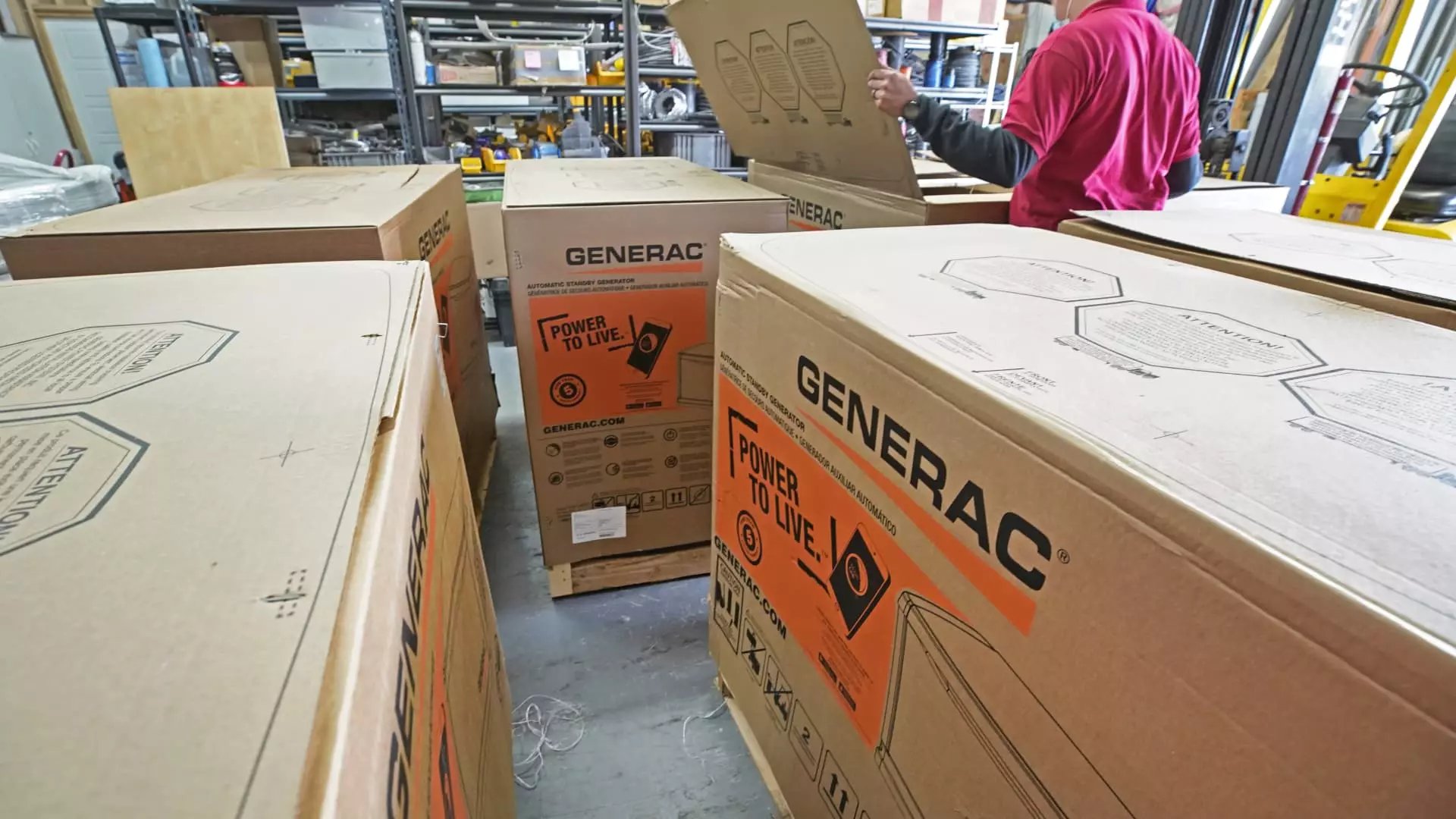As oppressive heatwaves grip vast regions of the United States, investors are scrambling towards Generac, a company that manufactures backup generators. This sudden spike in interest should raise a red flag for us all—while we celebrate the financial gains of a singular company, we need to confront the grim reality lurking beneath the surface. The staggering heat waves and ensuing power outages across states like New York and Illinois are not mere inconveniences; they indicate a society grappling with the visceral impacts of climate change. Invoking Generac’s stock performance paints a rather superficial picture of success, while neglecting the alarming implications of our over-reliance on failing infrastructure to manage escalating climate crises.
Power Outages: The New Norm?
The recent heatwave has brought to light a frightening trend—power outages are becoming increasingly common. With approximately 130 million people under extreme heat warnings, the pressure on our aging power grid has become untenable. We must question: how long can a nation whose infrastructure was not designed to handle such extremes continue to function? Perilously, this normalization of outages illustrates how ill-prepared we truly are. Climate change isn’t a future dilemma; it is an active threat, and we are desperately underestimating its immediate consequences.
While Generac’s rising stock may suggest that consumers are opting to invest in backup power solutions, this is symptomatic of a much larger issue—an acknowledgment that our systems are failing us. The Band-Aid solution of turning to generators instead of addressing the root causes of power grid failures merely masks a reality we ought to face.
The Hurricane Gamble
Adding fuel to the fire, the National Oceanic and Atmospheric Administration forecasts a potentially catastrophic Atlantic hurricane season, with predictions of 13 to 19 named storms and the likelihood of several major hurricanes. The probability of power outages stemming from these storms could increase significantly, effectively complicating our already dire energy predicament. Generac’s success stems not solely from consumer demand but from a failed system that has not invested adequately in resilience. Here, we must critically evaluate whether we wish to back a company profiting from our collective mismanagement of our environment.
Generac CEO Aaron Jagdfeld’s comments on CNBC highlight the urgency of the matter. He stresses that “this has become a massively critical discussion point.” Yet, instead of rallying for systemic changes to upgrade our infrastructure and combat climate change, our attention is diverted to purchasing backup solutions. This transactional mindset is dire and indicative of how we prioritize short-term gains over long-term sustainability.
Investing in a Dying System
When financial powerhouses like Bank of America forecast a substantial increase in demand for electricity, it is illuminating a troubling reality ahead. The focus is shifted toward utility stocks as they supposedly stand to benefit from this power demand increase. However, we must ask: what are we truly investing in? Are we nurturing an outdated and crumbling system rather than pushing for innovative and sustainable solutions to our energy needs?
While companies like Trane Technologies offer cooler systems to combat the heat, the economic model driving the energy sector must evolve. Supporting a utility company that merely waits for regulations to catch up in the face of climate change is not courage; it is complacency. Analysts suggesting “selective” investments within outperforming utilities could lead to continued profit—yet at what moral cost? The bigger picture begs us to direct our investments towards solutions that advocate for sustainable practices rather than perpetuating the cycle of dependence on outdated models.
In a climate-conscious world, the fixation on Generac’s stock rise is misleading; it represents a fear-based response to escalating environmental challenges rather than a sound investment in tomorrow’s solutions. We must challenge ourselves to look beyond the immediate gains and confront the broader implications of our energy choices, ensuring we invest in a future safeguarded against climate risks rather than simply riding the stormy tides of profit maximization.


Leave a Reply